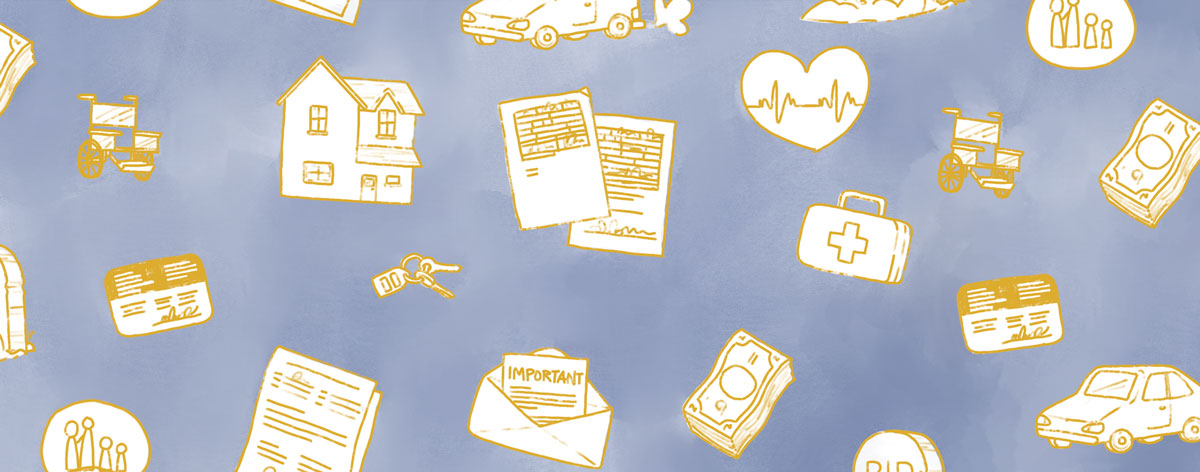

Health Insurance Surprise Billing
An unexpected health care bill in the mail is unpleasant, but can happen even when you think you’ve followed the terms of your insurance. This is called health insurance surprise billing, and it’s exactly what it sounds like—an unexpected balance bill for health services.
What Is Health Insurance Surprise Billing?
You’re likely familiar with the known costs of your health insurance—these are things you’re responsible to pay for out-of-pocket, such as copayments, coinsurance, and deductibles. If you use an in-network provider—that’s a provider or facility who has contracted with your plan—any difference between what is charged and what your insurance will pay is typically written off.
Surprise billing happens when you can’t control who is involved in your care. For instance, if you visit an out-of-network facility in a true emergency, use an in-network facility but are treated by an out-of-network provider without your knowledge, or have lab work sent to an uncontracted facility. In all these cases, the facility or provider can bill you for the difference between what is charged and what your insurance will pay.
Surprise billing happens when you can’t control who is involved in your care.
Protections Under The No Surprises Act
The No Surprises Act is a federal law designed to protect consumers from surprise billing in certain circumstances by limiting what providers can charge and providing a pathway for dispute resolution. The No Surprises Act provisions generally apply to emergency care, but some non-emergency care is covered. It’s complicated, but here what’s generally included under the act:
- Covered emergency out-of-network services, including air ambulance services
- Covered non-emergency services provided by an out-of-network provider at an in-network facility.
There is an exception to the No Surprises Act protection—if you agree in advance to be treated by an out-of-network provider, knowing the cost will be higher, you’re on the hook for the balance bill as well as any coinsurance, deductible, and copays.
People with medicare and medicaid are automatically protected from surprise or balance billing. If you think you’ve been wrongly billed by a healthcare provider, you can file a complaint with the federal government here.
The No Surprises Act also protects people without health insurance. Under the act, health care providers must provide uninsured or self-pay patients with a good faith estimate at their request or if they schedule services at least three days in advance. If you receive a bill that is substantially more than your good faith estimate, the No Surprises Act may protect you from a big payout. Get help navigating your medical billing and create an action plan with this official assessment.
The more informed you are as a consumer, the lower the chance of health insurance surprise billing happening.
Ways to Avoid Health Insurance Surprise Billing
Even though there are federal protections, it’s better to be informed and avoid any chances of balance billing altogether. Here are a few steps you can take to avoid a big surprise:
- Know the ins and outs of your plan. Set aside time to familiarize yourself with your plan, calling customer service for clarification if needed. Where are the in-network facilities in your area? If you need to seek health care in an emergency, where should you go? If you’re traveling, are there in-network places in the area? What services are covered under your insurance, and, more importantly, what common services are excluded?
- Ask questions. Anytime you’re scheduling care and also before receiving it, make sure to confirm that both the provider and facility are in-network, and that the services are covered. Find out how many providers are involved—for instance, with many surgeries, you’ll likely receive bills from the specialist, anesthesiologist or nurse anesthetist, respiratory therapist, facility and nurses, and more. Don’t be afraid to speak up and make sure all involved providers are contracted with your insurance.
- Get estimates. Request a good faith estimate of charges billed by the provider(s) and the facility, ideally in advance of any procedure. Even if you can only get a ballpark number, it might help you avoid sticker shock and surprise billing.
- Read the paperwork. It’s not exciting, but it’s necessary to read (or at least thoroughly skim) any agreements or waivers you’re asked to sign before entering into medical care. Not sure what the legalese means? Don’t be afraid to ask for clarification. If you need help reading or understanding paperwork, ask for help.
Health insurance is complicated, and protections under the No Surprises Act are no exception—there are still loopholes and issues that arise that could result in an unexpected bill arriving in the mail. But the more informed you are as a consumer, the lower the chance of this happening. Make sure you understand how health insurance works, get estimates of your financial responsibility, and speak up if you don’t understand what you’re signing or how your insurance applies in a specific situation.
Neither Banzai nor its sponsoring partners make any warranties or representations as to the accuracy, applicability, completeness, or suitability for any particular purpose of the information contained herein. Banzai and its sponsoring partners expressly disclaim any liability arising from the use or misuse of these materials and, by visiting this site, you agree to release Banzai and its sponsoring partners from any such liability. Do not rely upon the information provided in this content when making decisions regarding financial or legal matters without first consulting with a qualified, licensed professional.

